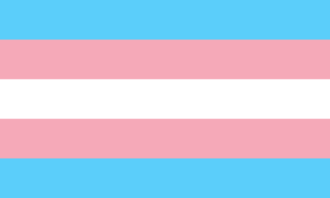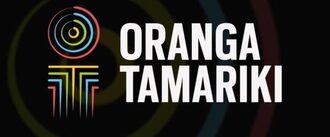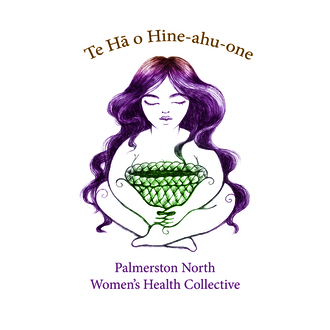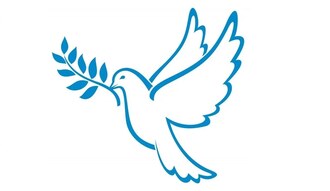-
Vote STV for HamiltonVoter turnout and engagement in local government elections is low. Residents feel that their vote doesn't make a difference. STV is a fairer and more effective voting system for our community to be represented. STV is a system where you rank candidates, instead of under FPP where you tick or don't tick to vote for a candidate. Under STV, you're able to communicate your preferences - if your initial candidates don't get enough votes to get in, as well as if there's more votes for your candidate than they needed to get in, your next choice is counted. Under FPP, because you only have the option of voting for a candidate, or not voting for them at all, this can shape voter behaviour by only voting for candidates who are perceived to be popular or established as not wanting to "waste" their vote on a candidate who may not get over the line. It may also mean that a vote for one candidate on your ballot may be undermined if you vote for another candidate who ends up coming in close in votes to the first candidate - under FPP, you're unable to communicate to the system your preference between the two. - Under STV, winning candidates will have support from a majority of voters. More people will have had a say in the make-up of the elected council. - There are fewer 'wasted votes'. Once a preferred candidate reaches the quota - votes are shifted to their next preferred candidate, and if a candidate does not come close to being elected, votes are shifted to their next preferred candidate as well. - Under STV, our council is more likely to be representative of the voices of our community. We recommend reviewing the additional information provided at https://www.yourcityelections.co.nz/ - put together by Hamilton City Council, and this video about how STV works in action and why is creates more representative councils https://youtu.be/l8XOZJkozfI206 of 300 SignaturesCreated by Politics in the Tron

-
Cancel 'Feminism 2020' at MasseyIt has come to our attention that in November this year, Massey University is hosting the event ‘Feminism 2020’ on its Wellington campus. The event is run by Speak up for Women (SUFW) who advocate against trans rights and spread scaremongering misinformation about trans people. SUFW masquerade under the guise of feminism, while actively turning transgender lives into a subject of debate; a dehumanising and harmful rhetoric. Massey Students’ Association stands for free speech and we respect the right of external groups to host events on campus. However, one of the key tenets of free speech is recognising that marginalised groups often don’t enjoy the same rights to freedom of expression. So with that in mind, Massey Students’ Association is choosing to prioritise the voices of our trans whānau who have told us that this event hurts them. By providing a platform for a hate group to speak on our campus, Massey University is putting ‘freedom of speech’ over the safety of its staff and students. Allowing this event to go ahead on campus will harm the trans community both directly; with ‘Speak up for Women’s’ attempting to spread their dehumanising ideology within our community and indirectly; by showing our students that Massey University is providing a space for people to spread hate and harmful anti-trans rhetoric. This is incredibly harmful to an already vulnerable group, with 71% of trans people reporting high or very high psychological distress in 2019’s Counting Ourselves community report. Massey is not obligated to host and provide a platform for an intolerant ideology that advocates for policies that make trans people feel less safe in the world. Freedom of speech doesn’t mean that we have to host an event that will cause harm to students on campus. If the University is serious about wanting to protect the rights of their transgender students there is no excuse in hosting this event. The student community already feel less safe on campus because of Massey’s decision to allow the event to go ahead. Within a few days of announcing the event, our campus has been plastered with trans-exclusionary radical feminist (TERF) stickers. MAWSA has met with UniQ and consulted the trans-community on campus, and the message from the student community is clear; the presence of this event on our campus is already damaging the wellbeing and safety of trans, intersex and queer communities. To prevent further harm to our student community, MAWSA requests, on behalf of Massey Wellington Students, that Massey University cancels ‘Feminism 2020’ within the next 24 hours. There is no room for hate on this campus. The group 'Speak up for Women' advocate against trans rights and spread scaremongering misinformation about trans people. SUFW masquerade under the guise of feminism, while actively turning transgender lives into a subject of debate; a dehumanising and harmful rhetoric. By hosting the 'Feminism 2020' event Massey are providing a platform for hate and division to be spread here and make trans and queer people feel unsafe. This is incredibly harmful to an already vulnerable group, with 71% of trans people reporting high or very high psychological distress in 2019’s Counting Ourselves community report. MAWSA is not in support of this and we stand with our trans community. The effect of such an event has already been seen, with anti-trans stickers already being plastered around campus. Online hate has been spread, our trans students are being put in direct danger and we only see this getting worse if this event is not cancelled.6,015 of 7,000 SignaturesCreated by Massey at Wellington Students' Association

-
Support Out of Hours Music and Art Schools (OOHMA) Staff for better working conditionsOut of Hours Music/Art Classes (OOHMA) have been a longstanding part of our music and art community in New Zealand for the past fifty years. Access to funding from the MOE ensures that public music schools deliver opportunities for young children in New Zealand to have a chance at learning a musical instrument without financial burden. Emerging research confirms the importance of music and arts as key factors in a child’s education and well-being. Children are known to perform better at other subjects at school if they are learning a music instrument or participating in art, as well as improved social interaction, confidence and emotional expression. The Ministry of Education currently facilitates funding to around 150 schools in New Zealand who, through the OOHMA scheme, employ hundreds of tutors who deliver music and art tuition to thousands of school children. Many of our current OOHMA are operating in excess of their funding to cope with increasing demand and have to turn students away. More families are turning to OOHMA schools for music lessons for their children, because they cannot afford the costs of private tuition.1,310 of 2,000 SignaturesCreated by Michael Greenwood
-
Extend the FREE Bus trial for kids across the whole BOP seven days a weekExtending the free children’s school bus fares trial to all buses at all times, including weekends, is one of the cheapest ways for Bay of Plenty Regional Council to get more people onto the buses and to reduce carbon emissions. The Council said it would only cost $167,000 per year (lost revenue) to extend the trial and make all buses free for kids across Tauranga and the Western Bay. (We do not have figures for extending the area covered to include the whole Bay Of Plenty but similar logic applies) This is only a couple of bucks a year per household, however it won’t end up costing a cent if the free children’s fares attract another 600 adult trips per week. That is quite possible, as more parents and grandparents will be able to afford to take the bus with their families.1,154 of 2,000 SignaturesCreated by Greater Tauranga
-
Urgent Royal Commission of Inquiry into Oranga Tamariki - Ministry for Children - formerly CYFSWhen the Oranga Tamariki Act 1989 (Children, Young Persons and Their Families Act 1989) was introduced it was seen to be world-leading child welfare legislation. The Act impacts on the lives of thousands of children, young people and their families. The Act introduced major changes to the way decisions were made about children and young people who were victims of abuse and neglect or who broke the law, and placed New Zealand at the forefront of international legislative best practice. The Act determines how the state intervenes to protect children from abuse and neglect, and to prevent and address child and youth offending. It represents how well our society cares for and supports our children and young people. The Act introduced principles that changed the way decisions were made about children and young people, enabling family to become partners in the decision-making process to resolve family issues. Fundamental to the Act was the incorporation and inclusion of families throughout the process of making decisions in matters of care and protection of children and young people, and offending by young people. New Zealanders were shocked by the coverage of an attempted uplift of a baby by Oranga Tamariki at Hawkes Bay hospital on 6 May 2019, what has come from this coverage has been an outpouring and ground swell of information from traumatized parents, grandparents, families and their children of their experiences dealing with Oranga Tamariki and the NZ Family Court. There is also a direct correlation between Oranga Tamariki, the NZ Family Court and our mental health and suicide crisis across our nation. The trauma experienced by those who have been engaged and under the care of Oranga Tamariki (CYFS), the NZ Family Court must be acknowledged and addressed. There needs to be independent investigations into the conduct, culture, processes and policies of Oranga Tamariki, the effect of the NZ Family Court processes and the impact of child removal on the wellbeing of our nation. An urgent Royal Commission of Inquiry must be established with wide ranging powers including referring suspected criminal offending by staff to the Police, Crown, or Solicitor General for prosecution. https://www.newsroom.co.nz/ot-reaction Melanie Reid and Bonnie Sumner for Newsroom - 4 July 2020 https://www.newsroom.co.nz/investigations/nzs-own-taken-generation Melanie Reid for Newsroom - 11 June 2019 https://www.newsroom.co.nz/oranga-tamariki-running-for-cover Vivienne Martini for Newsroom - 25 February 2020 https://www.newsroom.co.nz/oranga-tamariki-braces-for-more-bad-news Melanie Reid & Bonnie Sumner - 30 July 2020 https://www.newsroom.co.nz/another-damning-report-on-ot-taking-babies Tim Murphy for Newsroom - 6 August 2020 https://www.tvnz.co.nz/one-news/new-zealand/uplift-investigation-highly-critical-inaction-and-lack-capacity-oranga-tamariki#_=_ Anna Whyte 1 News 6 August 2020 https://www.ombudsman.parliament.nz/resources/he-take-kohukihuki-matter-urgency?fbclid=IwAR1U8588YV1rnnUEVQt9BcfV6yp3WokOi2mUitfCW37WCVvNq2_zSyONYas He Take Kōhukihuki | A Matter of Urgency - Office of the Ombudsman - 6 August 20205,878 of 6,000 SignaturesCreated by Lou Hutchinson
-
Remove Oranga Tamariki as the name for CYPFsOranga is a kupu which implies wellness - culturally the fact that this Ministry uses kupu Maori is distasteful given the bullying tactics used to remove Maori mokopuna and tamariki from their families without engaging with the whanau.12,429 of 15,000 SignaturesCreated by Carolyn Hopa
-
Legalize Drug Testing at Festivals/ConcertsCurrently if festival/concert organisations allow the testing of drugs to occur in their premises, they are technically breaking the law and can be prosecuted. If organisations are able to apply for a permit to legally conduct drug testing at their premises - more festivals and concerts will do so thus ensuring the safety of drug users at festivals. There is widespread information and data to prove that more harm is done from the intake of a mixture of unknown substances by drug users, than the actual intended drug itself. Drugs that are illegally sold to people in NZ may contain other unknown toxic substances, an unexpected high dosage - which can both be deadly, particularly when mixed with other substances such as alcohol. The drugs commonly used at festivals and concerts including LSD and MDMA, can consist of other more toxic or dangerous drugs that have similar effects to MDMA/LSD. The actual drugs themselves have a low risk of causing deadly effects to its users (however they are not completely harmless) when used in regulated and controlled environment. However, the impurities in these drugs from the black market and mixing with other substances (alcohol) increase the risk of deadly effects greatly. The additives and substitutes found in pills (including PMA, N-Ethylpentylone, NBOMes, Fentanyl) make the substance much more toxic and easier to overdose, and can have deadly effects such as heart attack, renal failure and stroke. The amount of people whose deaths are caused by party drugs are actually comparatively lower than that caused by alcohol, heroin and other substances. However, the public views them as causing more harm than they actually do, as media displays more incidents caused by them than other drugs. Statistics (on KnowYourStuff.org) also show that people are less likely to consume their drug after having it tested and finding the substance(s) it contains, is not what they presumed it to be. Thus reducing the potential number of hospitalisations and dangerous effects. In Australia, festivals have found that introducing drug testing at their events have resulted in a reduction of hospitalizations by 95%. At the Groovin Moo festival in Canberra last year, drug testing revealed that 84% of people who had their substances analyzed thought that they contained MDMA, but in fact only 51% actually contained any MDMA at all. It will also allow festival goers who have had their drugs tested to be given an identification card - so if they run into medical trouble during their time at the event medical staff are able to quickly identify what they have taken. https://www.stuff.co.nz/national/health/109699570/independent-drugtesting-tents-at-festivals-a-fantastic-idea-says-police-minister-stuart-nash https://thespinoff.co.nz/science/23-01-2019/what-are-the-health-risks-in-taking-ecstasy/ https://www.stuff.co.nz/national/health/109745413/pill-testing-what-drug-tests-and-festivals-do-and-why70 of 100 SignaturesCreated by Isobel Forde
-
Pledge your support for the Dementia DeclarationNearly 70,000 people have dementia now and we expect that number to increase to 170,000 by 2050 as New Zealand’s population continues to age. And that is just the tip of the iceberg. For every person diagnosed with dementia there are family, whānau and friends also affected by the diagnosis. It is distressing to watch people struggle so much, and to see the spiraling impacts of that struggle. But it is not too late to change the game, to put in place the systems, support and services that New Zealanders are going to need in coming years, and to reduce the cost burden on the country.863 of 1,000 SignaturesCreated by Alzheimers NZ

-
Reinstate Funding for Te Hā o Hine-ahu-one Palmerston North Women’s Health CollectiveTe Hā o Hine-ahu-one Palmerston North Women’s Health Collective is a unique, holistic, free, easily accessible women’s health service that has a proven track record over many years. It is now inter-generational in its reach, seeing the children, nieces and grandchildren of earlier clients. It is a ‘by women for women’ community development initiative that has always had a particular emphasis on addressing the health needs of low income wāhine/women (and their whānau) in a supportive, welcoming environment of manaakitanga and whanaungatanga. Poverty is a major concern of this government and this service helps to address this and other disadvantages that undermine the ability of women to access sensitive, responsive and empowering healthcare. https://i.stuff.co.nz/manawatu-standard/news/110556016/community-support-swells-for-trusted-womens-health-centre https://www.stuff.co.nz/national/health/110396565/anger-and-dismay-about-threat-to-womens-health-service567 of 600 SignaturesCreated by Bec Hancock
-
Regulate firearms advertising in New ZealandWe are concerned about the way gun advertising is currently managed in New Zealand. Gun City has prominent billboards throughout our major cities. These advertisements are depicting gun use as a fun family activity using quotes such as “get the family outside”. This type of advertising is the first step to the normalisation of gun ownership. In light of the recent events in Christchurch we ask that an immediate moratorium on firearms advertising is put in place. It is highly inappropriate to see these images at a time when the nation is grieving from a horrific gun-related incident. We acknowledge that many New Zealanders have legitimate reasons to own guns for farming, hunting or sporting purposes, however we want the government to take steps to ensure that the advertising of all firearms including semi-automatic weapons are properly controlled. We believe firearms advertising should be regulated in exactly the same way as tobacco or any other harmful product. We want this country to be a safe place for all New Zealanders. We don’t want guns to be a normal part of New Zealand society. Driving past billboards advertising guns just feels wrong to so many people. Children were among the innocent victims of the recent massacre in Christchurch. It is distressing and a major concern that children are exposed to this type of advertising. Principle 1 of the Advertising Standards Code states that “Advertisements must be prepared and placed with a due sense of social responsibility to consumers and to society.” It goes on to say: “Advertisements must not contain anything that is indecent, or exploitative, or degrading, or likely to cause harm, or serious or widespread offence, or give rise to hostility, contempt, abuse or ridicule.” We believe that the current series of advertisements for Gun City is currently causing widespread offence and can be regulated under this section of the code. We ask for regulation of all firearms advertising under this section of the Advertising Standards Code.1,122 of 2,000 SignaturesCreated by Hannah Clarke
-
Ban semiautomatic weaponsIt was a dark day in Christchurch. Innocent Muslim New Zealanders were gunned down in a place of prayer. High-capacity magazines make it much easier to conduct mass killings. The weapons used in this attack were exactly the type of weapon that police have been asking for greater control over. [1] We call upon the parliament to immediately take steps to legislate against the sale and possession of all semi-automatic weapons for private use. Other weapons designed for harm such as high capacity clips, military hardware ordnance, pump action pistols should also be banned. These weapons of war have no place in the hands of private citizens. They are not toys. They are designed explicitly for taking human lives. We call upon the NZ Parliament to take action. Donate to the Christchurch victims https://givealittle.co.nz/cause/christchurch-shooting-victims-fund https://www.stuff.co.nz/national/105882611/the-battle-over-semiautomatics-police-frustrated-by-the-law-firearm-owners-frustrated-by-police43,327 of 45,000 SignaturesCreated by Nik Green
-
Help NZ Thyroid Patients Get Treatment That WorksThyroid disease is more common than diabetes and heart disease. The World Health Organisation puts the world’s population of diagnosed thyroid patients at >750 million. New Zealand’s diagnosed population is >146,233. Many more are misdiagnosed or experience mismanaged care. Common symptoms include debilitating unexplained fatigue, unexpected weight gain/loss, depression, miscarriage, cold/heat intolerance and brain fog. Left untreated thyroid disease influences the onset of other diseases such as cancer, heart disease, and dementia; and in some cases early death. In the 1940s and 1950s doctors and endocrinologists diagnosed on signs and symptoms, prescribing treatments that worked. Then came the arrival of the TSH blood test and a synthetic drug called Levothyroxine which changed the way many doctors and endocrinologists diagnose and treat patients. As a result there is a large number of patients for whom these diagnostic and treatment approaches do not work. For example, all too often: - Doctors and endocrinologists miss altogether or misdiagnose thyroid disease in patients because they don’t recognise the signs and symptoms. Patients are often tested unnecessarily for other illnesses imposing cost on them and District Health Boards. - Patients who are prescribed Levothyroxine often experience ongoing symptoms. Alternative thyroid treatments containing a thyroid hormone called T3 work better for many of these patients. Most are never offered this treatment even though it is available, safe and effective. It is now difficult to find a NZ doctor or endocrinologist with the right knowledge to help thyroid patients. Those NZ doctors who are successfully diagnosing and treating thyroid disease need greater support; and the other doctors and endocrinologists need further education. By signing this petition you can help us change this. Each signature represents a patient, or a person who loves a patient who has been misdiagnosed, mistreated or dismissed by their endocrinologist or doctor. Thyroid Association of New Zealand is a patient-to-patient support group, started in July 2008. We are a voluntary organisation, whose founding members came together when Glaxo Smith Kline changed their Eltroxin formulation, causing adverse reactions among users. For more information about the thyroid or help finding a doctor who can help, visit us at: http://www.thyroidnz.org or Facebook at: https://www.facebook.com/groups/thyroidnz/. References: To read just some of the statistics and clinical evidence supporting our petition go to: http://www.thyroidchange.org/related-research.html or email us at: [email protected].4,077 of 5,000 SignaturesCreated by Thyroid Association of New Zealand













.jpg)